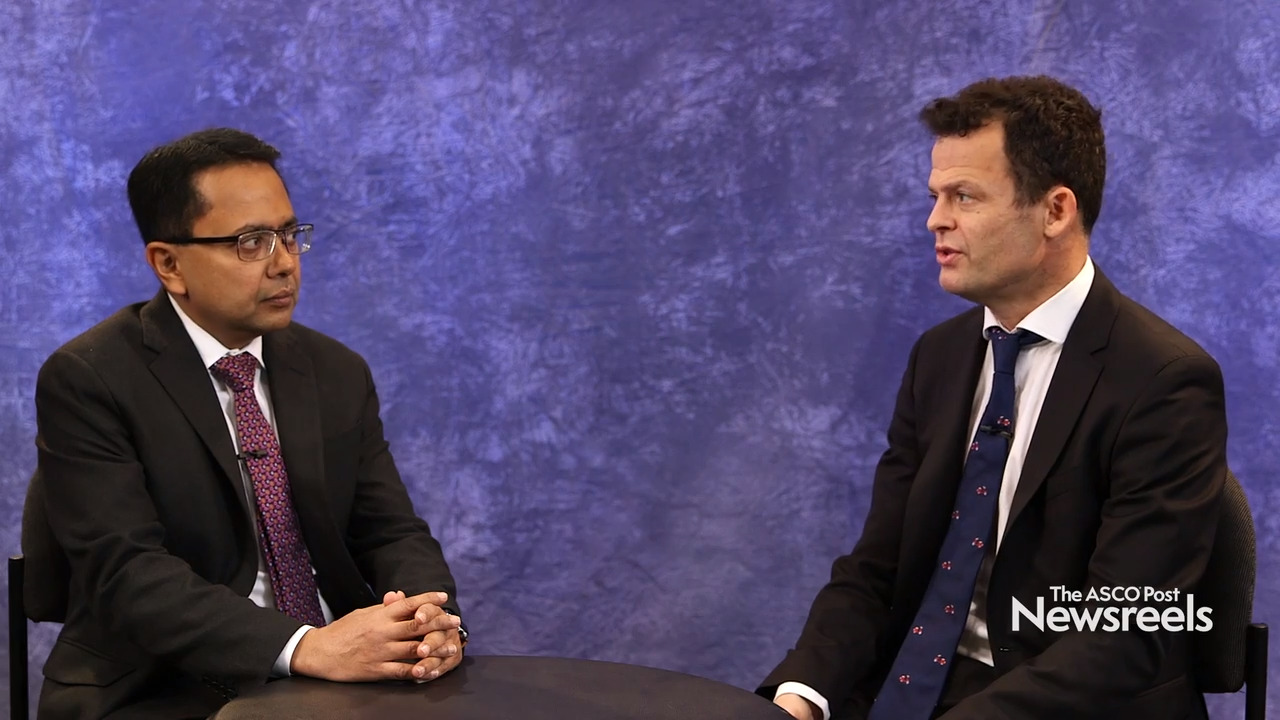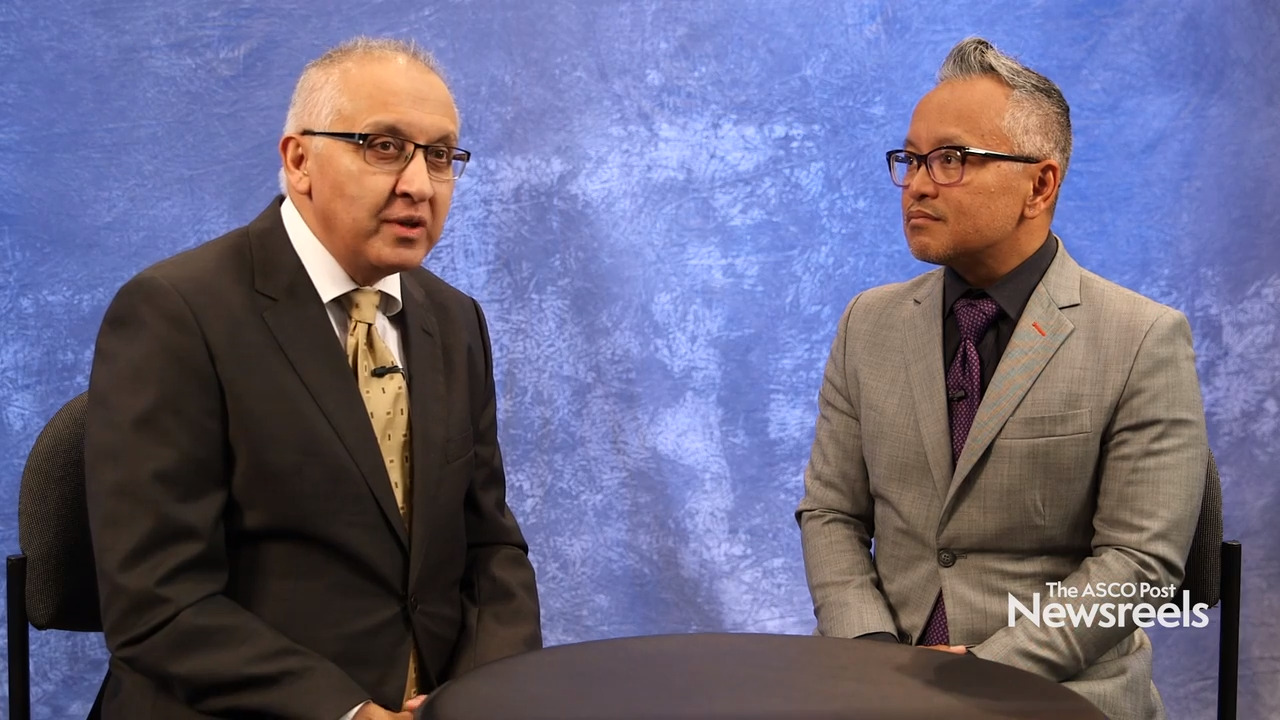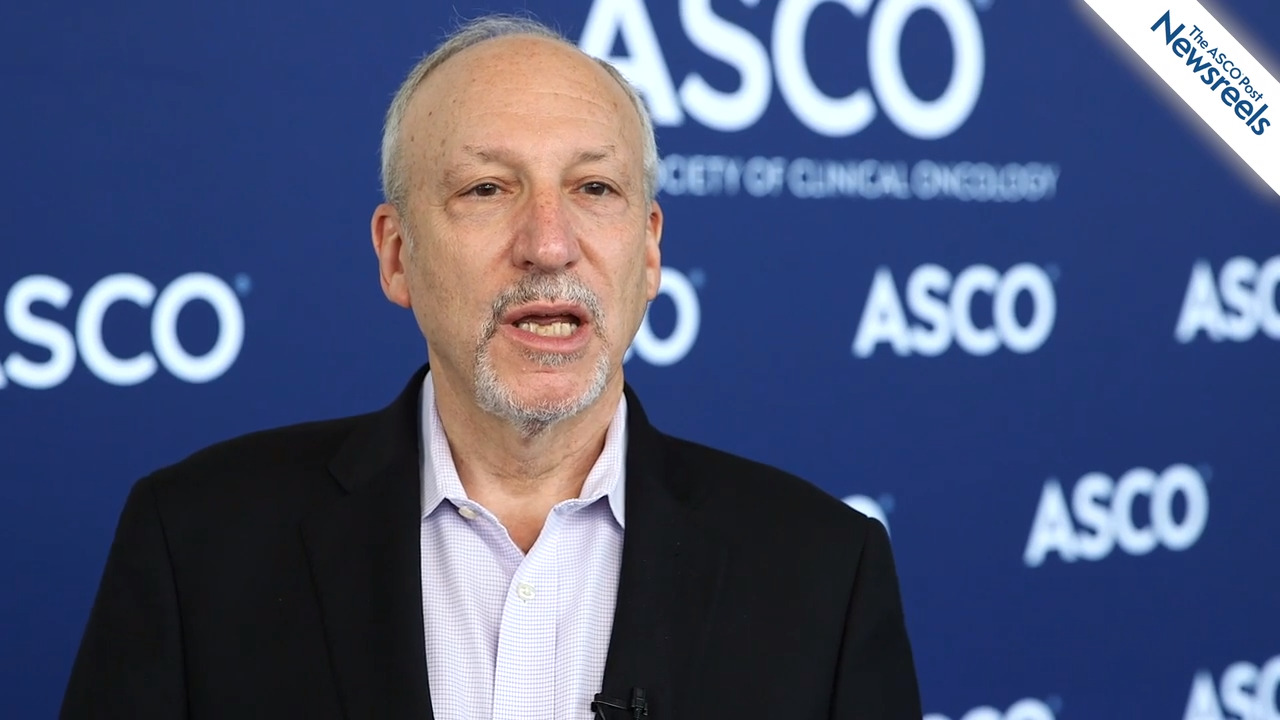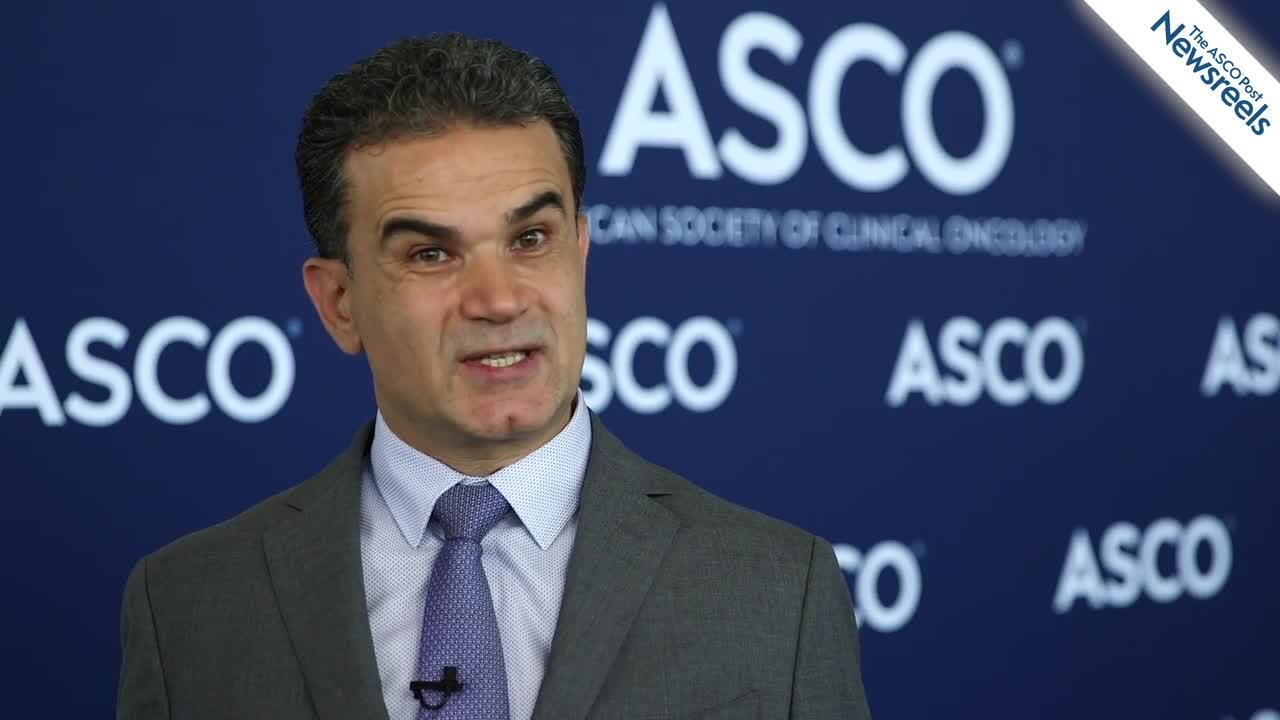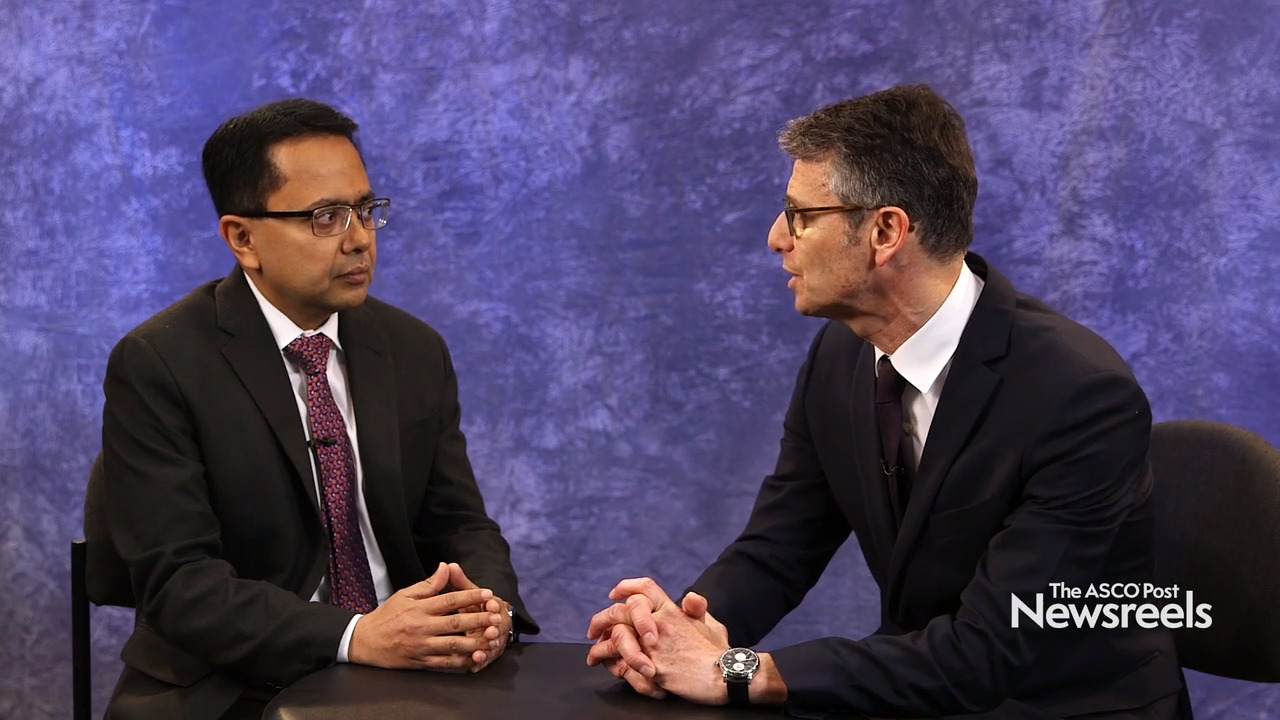Javier Sastre, MD, PhD, on Colorectal Cancer: Bevacizumab and FOLFOXIRI in Metastatic Disease
2019 ASCO Annual Meeting
Javier Sastre, MD, PhD, of Hospital Clinico San Carlos, discusses phase III findings on the assessment of circulating tumor cells as a prognostic factor and FOLFOXIRI plus bevacizumab combination outcomes for patients with poor-prognosis colorectal cancer (Abstract 3507).
Neeraj Agarwal, MD, of Huntsman Cancer Institute, University of Utah Health Care, and Thomas Powles, MD, PhD, of Queen Mary University of London, discuss phase III study findings on outcomes with combination therapy for intermediate/poor-risk and sarcomatoid subgroups of renal cell carcinoma (Abstract 4500).
Don S. Dizon, MD, of the Lifespan Cancer Institute, and Mansoor Raza Mirza, MD, of Copenhagen University Hospital, discuss study findings that showed, compared with niraparib alone, niraparib plus bevacizumab improved progression-free survival in women with recurrent platinum-sensitive ovarian cancer (Abstract 5505).
Lee S. Schwartzberg, MD, of the West Cancer Center, reports on this past year’s progress of the ACCC initiative to speed adoption of immunotherapeutics in community practices.
Ahmad A. Tarhini, MD, PhD, of Emory University and Winship Cancer Institute, discusses phase III findings from the U.S. Intergroup E1609 trial, which showed survival benefits for patients with resected high-risk melanoma—for the first time in the history of melanoma adjuvant therapy (Abstract 9504).
Neeraj Agarwal, MD, of the Huntsman Cancer Institute, and Arnaud Méjean, MD, PhD, of the Hôpital Européen Georges-Pompidou, Paris Descartes University, discuss an update to the CARMENA trial with new phase III study results on the benefit of cytoreductive nephrectomy followed by sunitinib vs sunitinib alone in metastatic renal cell carcinoma (Abstract 4508).
